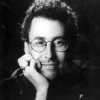Tony Kushner

Tony Kushner
Anthony Robert "Tony" Kushneris an American playwright and screenwriter. He received the Pulitzer Prize for Drama in 1993 for his play Angels in America: A Gay Fantasia on National Themes. He co-authored with Eric Roth the screenplay for the 2005 film Munich, and he wrote the screenplay for the 2012 film Lincoln, both critically acclaimed movies, for which received Academy Award nominations for Best Adapted Screenplay. For his work, he received a National Medal of Arts from President Barack Obama...
NationalityAmerican
ProfessionScreenwriter
Date of Birth16 July 1956
CityNew York City, NY
CountryUnited States of America
In some ways [the Internet]'s definitely an enemy.
We all romp about, grieving, wondering, but with rare exception we mostly remain suspended in the Rhetorical Colloidal Forever that agglutinates between Might and Do.
One of the things I learned in 'Slavs!' is that it's much easier to talk about being gay than it is to talk about being a socialist. People are afraid of socialism, and plays that deal with economics are scarier to them.
The way you give love is the most profoundly human part of you. When people say it's ugly or a perversion or an abomination, they're attacking the center of your being.
The big influence on me was Robert Altman, who, especially in 'Nashville,' transformed my sense of dramatic structure and showed how you could handle overlapping stories.
I'm a sort of political person, and I feel that there's a kind of ineradicably political dimension to theater, to all theater, whether it's overtly political or not.
If you have value as an artist it's probably going to be in your capacity to let things inside you get past things that are placed there to keep you from telling the truth. The more you see things as clearly and coldly as you can, the more value you're going to have.
I grew up in a small Southern town, and there were white people and black people. Coming to New York to go to Columbia, every time I went into the subway I was absolutely astounded because you see people from all over the world who actually live here - who aren't just here as tourists.
I'm happy that I feel a little less out of place in filmmaking than I once was - but it's almost impossible for a playwright in the U.S. to make a living. You can have a play, like I did with 'Angels,' and it still generates income for me, but it's not enough for me to live on and have health insurance.
If you're gay and you can't hold hands, or you're black and you can't catch a taxi, or you're a woman and you can't go into the park, you are aware there's a menace. That's costly on a psychic level. The world should be striving to make all its members secure.
But I still read Shaw on a regular basis. What I love is the nakedness of the polemic and the irresistible good humour. For me, 'Major Barbara' is the greatest of all the plays in that it starts from the rational and proceeds to the ecstatic in a spectacular way, and leaves you very confused if you cling to Euclidean logic.
Accuracy is paramount in every detail of a work of history. Here's my rule: Ask yourself, 'Did this thing happen?' If the answer is yes, then it's historical. Then ask, 'Did this thing happen precisely this way?' If the answer is yes, then it's history; if the answer is no, not precisely this way, then it's historical drama.
A handful of works in history have had a direct impact on social policy: one or two works of Dickens, some of Zola, 'Uncle Tom's Cabin' and, in modern drama, Larry Kramer's 'The Normal Heart.'
Gay TV has been immensely important in transforming American culture in a more gay-positive direction.